Discover Your Roots
SIGN UPDiscover Your Roots
SIGN UPAugustine is a gender-neutral name of Latin origin, meaning "Great." Derived from the Latin word augere, which translates to "to increase," the name Augustinus is linked to the title given to Roman emperors, "Augustus," denoting "venerable." Saint Augustine of Hippo, an influential early Christian theologian, further popularized the name through his significant contributions to Catholic and Protestant theology. The name has seen variations across different languages and cultures, including Austin, Agostino, and Agustín. While traditionally considered a masculine name, it has also been used for girls, albeit rarely. Diminutive and pet forms of the name include Agus, Augie, and Tina. Augustine's popularity has extended to various countries, with forms like Agustín being widely used in Spanish-speaking regions.
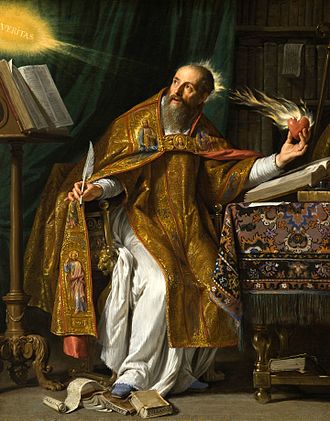
Augustine of Hippo, also known as Saint Augustine, was a theologian and philosopher of Berber origin, born on 13 November 354 in Thagaste, Roman North Africa. His influential writings deeply impacted Western philosophy and Christianity. As the bishop of Hippo Regius, he authored significant works such as The City of God, On Christian Doctrine, and Confessions. Augustine's conversion to Christianity in 386 led him to develop his own approach to philosophy and theology, contributing to the doctrine of original sin and just war theory. His vision of the Church as a spiritual City of God during the disintegration of the Western Roman Empire profoundly influenced the medieval worldview. Augustine is revered as a saint in various Christian denominations and is celebrated on 28 August, the day of his death. His teachings on salvation and divine grace also earned him recognition as a theological father of the Protestant Reformation. Despite some disputed doctrines, his influence extends to the Eastern Orthodox Church, where his feast day is celebrated on 15 June. Augustine's legacy continues to impact theological thought and remains a significant part of Christian history.
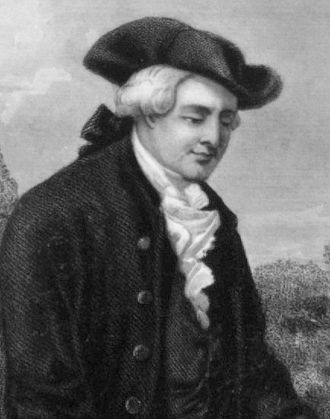
Augustine Washington Sr. (May 27, 1694 – April 12, 1743) was a prominent Virginian planter and merchant, best known as the father of the first President of the United States, George Washington. Born in Westmoreland County, Virginia, into a wealthy planter family, he owned several slave plantations, deriving his primary source of wealth from them. He also engaged in land development and owned an iron mine, further expanding his economic activities. Augustine played an active role in various government positions in the counties where he owned land, demonstrating his commitment to public service. His family life was marked by tragedy, with the loss of his first wife, Jane Butler, and later marriage to Mary Ball, with whom he had five surviving children, including George Washington. Augustine's legacy extended beyond his lifetime, as his estate and properties were inherited by his sons, contributing to the establishment of the iconic Mount Vernon estate. Augustine Washington Sr.'s contributions to the economic and political landscape of colonial Virginia left a lasting impact, shaping the future of the United States.
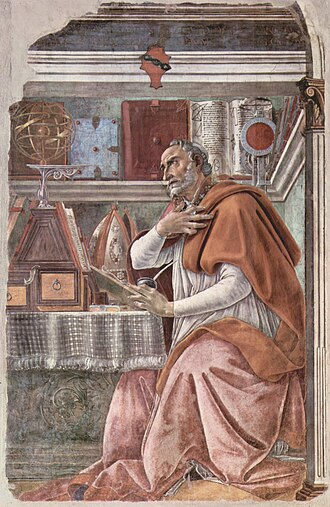
Augustine is a masculine given name derived from the Latin word augere, meaning "to increase." The Latin form Augustinus is developed from Augustus which means "venerable" and was a title given to Roman emperors. Saint Augustine of Hippo was a significant early Christian theologian and Doctor of the Church, contributing to the given name's spread across Europe and further continents through evangelism. The name has variations in different languages and cultures, such as Agustín in Spanish. In the United States, both Augustine and Austin have been used for girls, with Austin ranking in the top 50 names for baby boys. The Spanish form, Agustín, was the most popular name given to baby boys born in Uruguay in 2006 and in Chile in 2012 and 2013. Agustina, the Spanish feminine, was the third most popular name used for girls born in Uruguay in 2006 and was popular in Buenos Aires and Chile. The name has a wide range of diminutive and pet forms across different languages. Augustine's historical and religious significance has contributed to its enduring popularity across various cultures and languages.
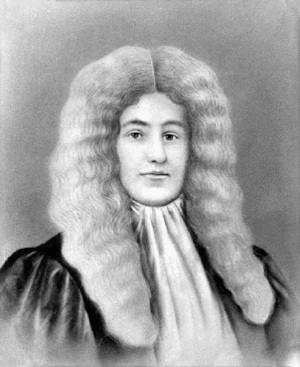
Colonel Augustine Warner Jr. (June 3, 1642 – June 19, 1681) was a prominent figure in early American history, known for his roles as a planter, military officer, and politician. He served in the House of Burgesses, holding the position of Speaker in two separate sessions in 1676 and 1677. Warner also served on the Virginia Governor's Council until his death. Notably, he is recognized as the last common ancestor of George Washington and King Charles III. Warner's early life saw him being born as the only son of Augustine Warner Sr. in the Virginia Colony. He received his education in London and later married Mildred Reade, daughter of George Reade, Secretary of the Virginia Colony. As a planter and burgess, Warner played an active role in Gloucester County, assuming his father's position as Colonel of the militia and representing the county in the House of Burgesses. Warner's involvement in the events surrounding Bacon's Rebellion showcased his loyalty to Governor Berkeley. In his later years, Warner was appointed to the Governor's Council and was involved in legal disputes, leaving a legacy that includes Warner Hall, a historic property listed on the National Register of Historic Places. Warner's descendants have strong ties to significant historical figures, including the ancestors of Queen Elizabeth II of the United Kingdom and Captain Meriwether Lewis of the Lewis and Clark Expedition. Warner's contributions to early American history and his influential descendants cement his place in
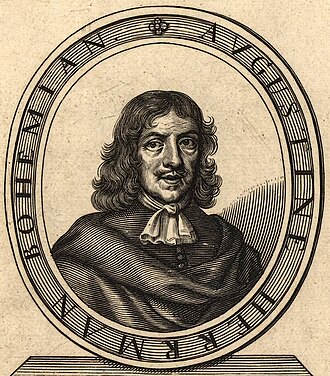
Augustine Herman, also known as Augustin Heřman, was a Bohemian explorer, merchant, and cartographer who made significant contributions to the mapping of North America. Born around 1621 in Mšeno, Kingdom of Bohemia, he was trained as a surveyor and possessed multilingual skills, including Latin. In 1640, he arrived in New Amsterdam, where he became a prominent figure in the Dutch community and commerce. Herman was involved in various commercial activities, including trading furs and tobacco, and became a wealthy landowner in areas such as Yonkers, New York. He also played a role in the political landscape, serving on the board of the Nine Men and engaging in diplomatic missions. His most notable cartographic achievement was the production of an accurate map of the Chesapeake Bay and Delaware Bay regions. Augustine Herman's legacy is marked by his significant contributions to the early exploration and mapping of North America, particularly the mid-Atlantic region.
All images displayed on this page are sourced from Wikipedia or Wikimedia Commons.We use these images under their respective Creative Commons or public domain licenses. Wherever applicable, author attributions and license information are provided. If you believe an image is used incorrectly or outside its license terms, please contact us so that we can review and correct the issue.